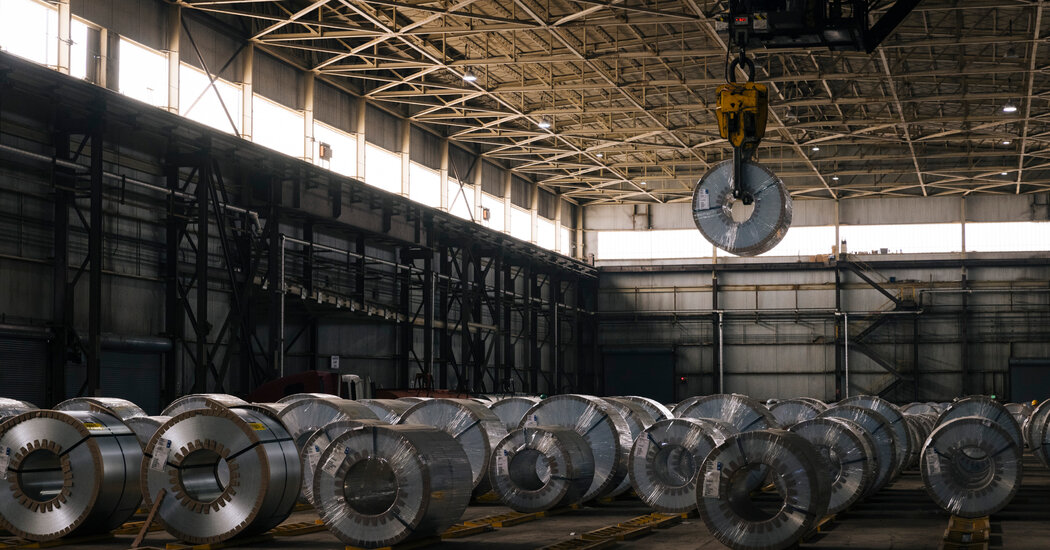Industries produce 25 percent of America’s planet-warming emissions but so far have proved very hard to clean up. The Biden administration is trying.
The Biden administration plans to spend up to $6 billion on new technologies to cut carbon dioxide emissions from heavy industries like steel, cement, chemicals and aluminum, which are all enormous contributors to global warming but which have so far been incredibly difficult to clean up.
Energy Secretary Jennifer Granholm said Monday that her agency would partially fund 33 different projects in 20 states to test methods for curbing emissions from a wide variety of factories and industrial plants, calling it “the single largest industrial decarbonization investment in American history.”
Constellium, an aluminum producer, would receive up to $75 million to build a first-of-a-kind aluminum casting plant in Ravenswood, W.Va., that can run on cleaner burning hydrogen fuels rather than natural gas.
Kraft Heinz, a food manufacturer, would get up to $170.9 million to install electric boilers and heat pumps at 10 facilities across the country, where they would be used to generate the large amounts of heat needed for things like drying macaroni without directly burning fossil fuels.
Cleveland-Cliffs, a steel manufacturer, would get up to $500 million to help retire a large coal-consuming blast furnace in Middletown, Ohio, and replace it with two furnaces that use electricity to turn scrap into steel. The company would also test ways to produce steel using hydrogen.
While the projects themselves would put a relatively small dent in U.S. emissions, Ms. Granholm said the goal was to demonstrate novel technologies that can scale up rapidly and “set a new gold standard for clean manufacturing in the United States and around the world.”
